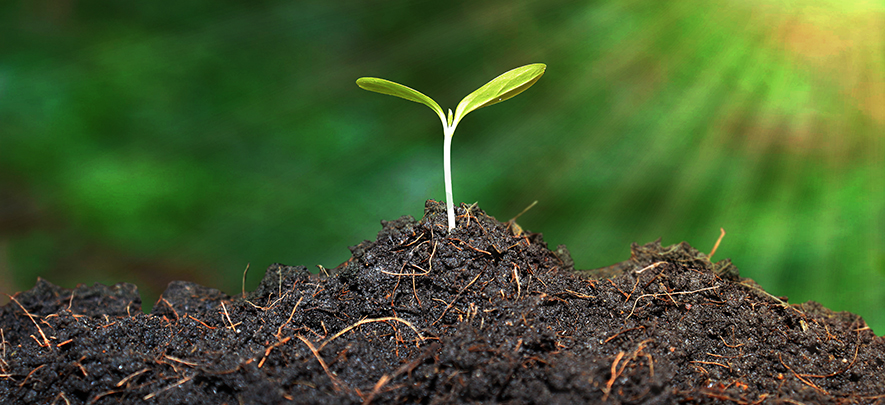Is your soil up to the challenge?

Agriculture
272 week ago — 5 min read
Background: The harvest festival of Pongal is celebrated as a thanksgiving to mother nature. To mark this occasion, founder of Suma Agro India, K.Karthik shares why soil nourishment and health is the starting point for consistently good yield.
As the world population continues to grow and as our farmers prepare for next crop, far more effort and innovation are desperately required so as to sustainably increase agricultural production.
Although we emphasise on produce of high yields of crops, it is crucial to recognise that many soils around the world are degrading. Agriculture must therefore transform itself, if it is to feed a growing global population and provide the basis for economic growth and poverty reduction. The UN Food and Agriculture Organisation (FAO) calculated that we have about 60 years of harvests left. What happens thereafter?
There is a need to produce more food from existing farmland. We’re asking more from our soils than ever before. It’s time to ensure they’re ready to deliver it.
As much as 60% of crop yield depends on soil fertility; the focus should be on the nurturing process of converting a degraded or low yielding soil into a truly highly productive one.
Why focus on soil?
95% of the food is directly or indirectly produced in soils and nearly 80% of the average calorie consumption per person comes from crops directly grown in the soil. As much as 60% of crop yield depends on soil fertility, the focus should be on the nurturing process of converting a degraded or low yielding soil into a truly highly productive one. Vitality and resistance of a crop is determined in the growing medium. Healthy crop begins from the ground up.
The need for a Brown Revolution
Soil health is the foundation for sustainable agriculture. Indiscriminate use of chemicals in agriculture has resulted in its low quality. Once the soil is degraded, no amount of chemicals inputs can revive it.
The need is to bring back soil fertility and help the farmers to produce healthy food for generations to come by a Brown Revolution in farming. To rejuvenate our soils and feed generations to come and thus make agriculture truly sustainable.
How can we revive dead soils?
There is no better way to enhance the economics of farming, than to build soil humus and enhance the natural processes, such as microbial activity, which can be sustained over a long period of life.
Humates are now recognised as the single most productive input in agriculture. It acts by increasing the soil organic carbon. SOC is the very foundation for healthy and productive soil. It positively influences, or modifies the effect of, essentially all soil properties.
Humates have a wide range of benefits:
- Builds organic matter
- Leads to growth of beneficial soil microbes
- Improves soil structure
- Increases water retention capacity
- Enhances nutrient and micronutrient uptake and photosynthesis
- Resistance to abiotic stress, including salinity
- Increases growth, yield and product quality
Use of soil organic carbon rich products has shown to reduce the need for commercial fertilizers by increasing its fertilizer efficiency. Farmers will gradually reduce application of macro and micronutrients fertilizers application with addition to the improvement of overall crop yields and quality.
Also read: An entrepreneur's quest to create an innovative soil enrichment product
A healthy soil
Healthy soil’s impact is wide-ranging but three big effects are:
- Its ability to improve nutrition
- Its ability to halt soil erosion, and
- Its potential to slow the effects of climate change.
"The soil is the great connector of lives, the source and destination of all. It is the healer and restorer and resurrector, by which disease passes into health, age into youth, death into life. Without proper care for it we can have no community, because without proper care for it we can have no life.” ― Wendell Berry
Also read: Opportunities for SMEs in agriculture
Image source: shutterstock.com
To explore business opportunities, link with me by clicking on the 'Connect' button on my eBiz Card.
Disclaimer: The views and opinions expressed in this article are those of the author and do not necessarily reflect the views, official policy or position of GlobalLinker.
Network with SMEs mentioned in this article
View KARTHIKEYAN 's profile
Most read this week
Trending
Ecommerce 6 days ago










Comments (1)
Share this content
Please login or Register to join the discussion